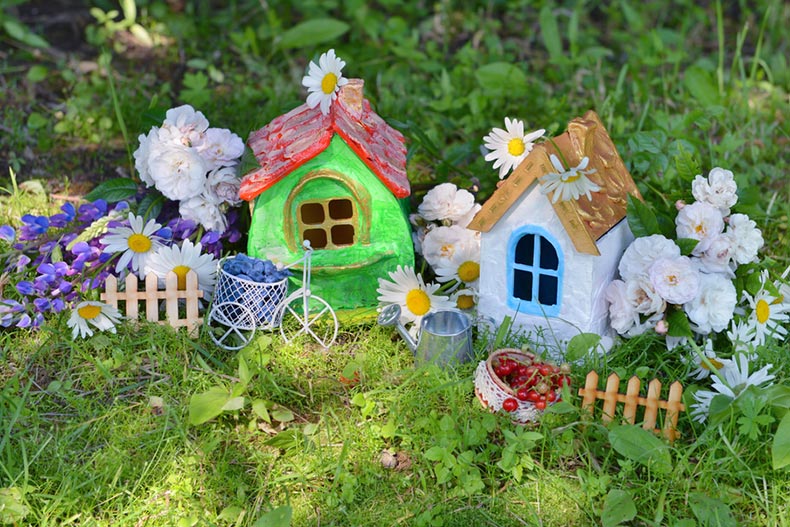Downsizing a home can have many benefits. For some homeowners who no longer want a lot of space, it means less to clean and take care of. For those who plan to travel in retirement, it can mean purchasing a smaller, more affordable home.
Downsizing is also increasingly popular for adults in their midlife or older years. When their children have left the house, they find exchanging a larger home for a smaller home beneficial. According to a 2019 Report from the National Association of Realtors, while younger buyers are purchasing larger homes, “sellers 54 years and older often downsized and purchased a smaller, less expensive home than they sold.”
Here’s what homebuyers need to know about downsizing.
What Is Downsizing?
Downsizing a home simply means buying a smaller home. Many times, this comes at a period when homeowners no longer need a large house. “Many people we work with have lived in their current homes for 15, 20, sometimes 25+ years,” says 55places.com’s Midwest Regional Sales Manager George Kolar.
Homeowners can have many different reasons for downsizing. For some, having kids leave the house is an opportunity to buy a smaller home. Others want to eliminate time spent cleaning, doing yard work, or worrying about exterior upkeep. A smaller home means fewer rooms to clean, and many active adult communities include exterior home maintenance services in their homeowners’ association (HOA) fees.
However, for people approaching retirement, downsizing can also be a very practical choice. Purchasing a less expensive, smaller home can mean smaller mortgage payments, or in some cases, hardly a mortgage at all. Downsizing also cuts back on utility costs, with less house to heat or cool. For similar reasons, downsizing also appeals to those who want to spend more time traveling as they get older. A smaller home with less maintenance can free up time, money, and stress.
Why Should You Downsize?
Downsizing is a decision that each homeowner or family has to take into consideration. However, if the stress of home upkeep and costs are major concerns, downsizing might be a good choice. Downsizing can save money, be more energy-efficient, and reduce time spent doing chores.
It can also be a great opportunity to begin organizing and clearing out clutter. In recent years, the decluttering movement has taken hold, with books and TV shows teaching and encouraging people to live with less. Moving generally involves getting rid of things that you no longer need, and getting rid of unwanted or unused items is usually necessary when downsizing.
How to Downsize Your Life
One of the most important techniques to downsizing a home is downsizing in stuff first before purchasing that downsized home. Once a home is sold and a new one bought, taking the time to downsize may get too hectic and overwhelming. “The most important thing we recommend is to start small,” says Kolar. He suggests starting with a kitchen drawer, especially a junk drawer. “Throw out the whiteout that is dried up, throw out or organize the rubber bands and paper clips, and build some momentum.” Throwing away completely unwanted or unusable items is easy and less emotional.
A big mistake is to start with a large spot, like the garage, basement, or attic. “Starting with any one of these three is a recipe for a disaster,” says Kolar. These spots in the home are likely very cluttered and full of stuff. They can also have items that are more difficult to consider getting rid of like family momentos, baby clothes or toys, photographs, or items that hold other emotional value. “You need to start small and build momentum,” says Kolar.
People who are considering downsizing should also have conversations with friends and family about those emotionally valuable items. Are the baby clothes suitable for grandkids? Who in the family might want photographs or other family heirlooms? After those conversations, it may be easier to determine what to keep and what to get rid of.
Kolar recommends creating three piles when tackling bigger areas. “The ‘Yes’ pile contains items bound for the new home. The ‘No’ pile contains things family or friends have already indicated they want or items suitable for Goodwill, the Salvation Army, or other charities. Then, there’s the ‘Maybe’ pile. Rather than being a large pile, the ‘Maybe’ pile should be the smallest of the piles. Keep in mind, if you’re downsizing your home, then you’ll likely need to downsize the amount of “stuff” you currently have,” says Kolar.
Downsizing and Starting Over
Moving is always an emotional experience. Transitioning from one home to another means leaving behind memories. Downsizing stuff also means getting rid of physical items that connect to memories and experiences. This is part of the reason why many people find the task so hard.
However, downsizing to a smaller home also brings positive emotions. A new home presents new adventures and new memories. It also provides the opportunity to redecorate and reinvigorate home interiors. Also, downsizing offers more time and money for personal passions.











